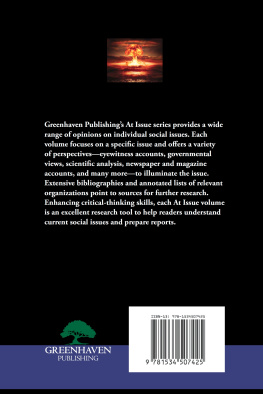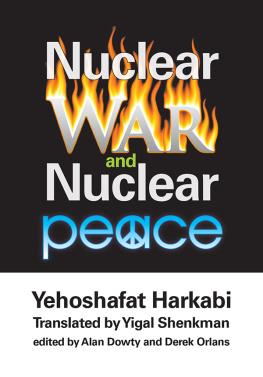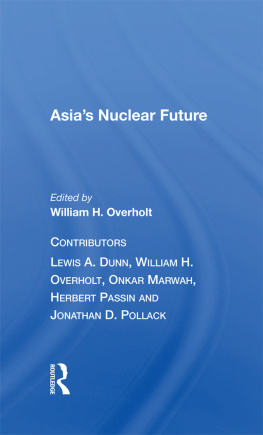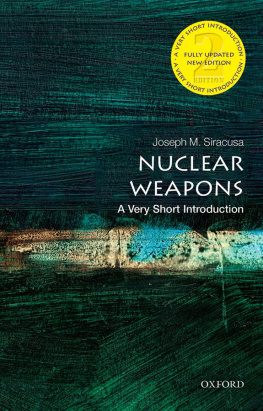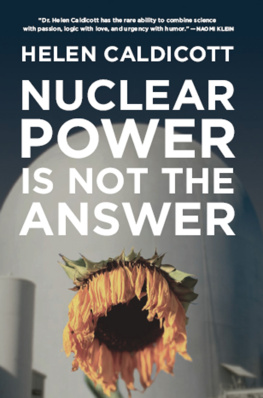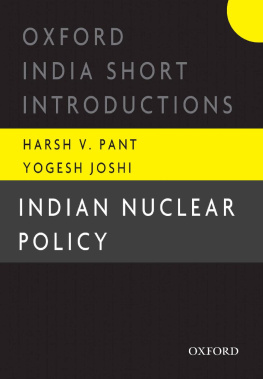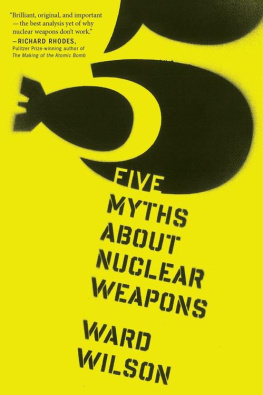The International Institute for Strategic Studies
Arundel House | 1315 Arundel Street | Temple Place | London | WC2R 3DX | UK
First published April 2010 by Routledge
4 Park Square, Milton Park, Abingdon, Oxon, OX14 4RN
for The International Institute for Strategic Studies
Arundel House, 1315 Arundel Street, Temple Place, London, WC2R 3DX, UK
www.iiss.org
Simultaneously published in the USA and Canada by Routledge
270 Madison Ave., New York, NY 10016
Routledge is an imprint of Taylor & Francis, an Informa Business
2010 The International Institute for Strategic Studies
DIRECTOR-GENERAL AND CHIEF EXECUTIVE John Chipman
EDITOR Tim Huxley
MANAGER FOR EDITORIAL SERVICES Ayse Abdullah
ASSISTANT EDITOR Janis Lee
COVER/PRODUCTION John Buck
The International Institute for Strategic Studies is an independent centre for research, information and debate on the problems of conflict, however caused, that have, or potentially have, an important military content. The Council and Staff of the Institute are international and its membership is drawn from almost 100 countries. The Institute is independent and it alone decides what activities to conduct. It owes no allegiance to any government, any group of governments or any political or other organisation. The IISS stresses rigorous research with a forward-looking policy orientation and places particular emphasis on bringing new perspectives to the strategic debate.
The Institute's publications are designed to meet the needs of a wider audience than its own membership and are available on subscription, by mail order and in good book- shops. Further details at www.iiss.org.
Printed and bound in Great Britain by Bell & Bain Ltd, Thornliebank, Glasgow
All rights reserved. No part of this book may be reprinted or reproduced or utilised in any form or by any electronic, mechanical, or other means, now known or hereafter invented, including photocopying and recording, or in any information storage or retrieval system, without permission in writing from the publishers.
British Library Cataloguing in Publication Data
A catalogue record for this book is available from the British Library
Library of Congress Cataloging in Publication Data
ISBN 978-0-415-59528-5
ISSN 0567-932X
ADELPHI 410
ACKNOWLEDGEMENTS
We owe gratitude to many people who contributed to the writing of this book. We benefitted most from the support of Eliot Fackler, research assistant at the Kroc Institute for International Peace Studies at the University of Notre Dame, who provided help with virtually every aspect of the book's preparation. He participated in our writing sessions, maintained control of evolving chapter documents, researched and fact-checked dozens of sources, and helped with citations and text editing. His meticulous professionalism shaped nearly every page of this volume. We also received important assistance from Jennifer Glick, publications director at the Fourth Freedom Forum, who assisted with editing, the preparation of citations and the verification of sources.
The book reflects valuable insights gleaned from the conference, The NPT and a World without Nuclear Weapons, cosponsored by the Finnish Institute of International Affairs and the Kroc Institute for International Peace Studies, which took place in Helsinki 2224 October 2009. Most significant were the keynote addresses of Margaret Beckett, Gareth Evans and William Perry, which shaped the conference and influenced our thinking as we crafted this volume. We gained important research findings and policy analyses from commissioned papers written by Rebecca Johnson, Harald Mller, T.V. Paul, and George Perkovich. We also benefitted from papers submitted by Ian Biggs, Tarja Cronberg, James Goodby, Mohammad Shaker, Sverre Lodgaard and Henrik Salander.
We received assistance from Alistair Millar, Etel Solingen, William Potter, Jonathan Schell, Avner Cohen, and Harald Mller, who either read and commented on portions of the manuscript or answered queries about sources and specific points of fact and analysis. We benefitted most from very extensive comments and queries from Mark Fitzpatrick, director of the non-proliferation and disarmament programme at the International Institute for Strategic Studies in London, and from Tim Huxley, senior editor of the Adelphi series, also at IISS. We are grateful for support in preparing the manuscript from Janis Lee, assistant editor for the Adelphis at IISS.
We are most grateful to our respective institutes, the Finnish Institute of International Affairs and the Kroc Institute for International Peace Studies at the University of Notre Dame, for their co-sponsorship of the Helsinki conference and support for our efforts in researching and writing this volume. Although we benefitted from many in preparing this volume, we take full responsibility for the analyses presented here and for any errors of fact or interpretation that may exist in the volume.
PREFACE
Rarely in the atomic age have hopes been raised as high as they are now for genuine progress towards disarmament. The new receptivity to nuclear abolition is reflected in the policy declarations of the Obama administration and other governments, and was sparked by a wave of private initiatives that started in 2007 led by former US Secretary of State George Shultz and other former senior officials and political leaders in many countries. Yet despite the glowing pledges of support for a world without nuclear weapons, questions arise about the sincerity of the nuclear-weapons states. They vow to get rid of these weapons at Nuclear Non-proliferation Treaty (NPT) Review Conferences and international summit meetings, yet in their national security policies they cling to the bomb and show no sign of abandoning nuclear deterrence policies. The new US-Russia strategic reduction treaty lowers ceilings for deployed nuclear warheads by more than 30%, but the number of readily useable weapons will decline very little. A broad consensus exists on the urgency of stemming proliferation, yet little progress is visible in attempts at persuading North Korea and Iran to abandon nuclear capability or in reducing nuclear dangers in South Asia. Russia and the West affirm their common commitment to security cooperation, yet they differ on a broad range of issues and have lost much of the spirit of partnership that flourished briefly in the immediate post-Cold War years. A critical juncture may be approaching. If the soaring rhetoric of disarmament can not produce more substatntial policy results, efforts to build support for nuclear abolition could collapse into cynicism, and an opportunity may be missed to advance international security.
Officials who cling to nuclear weapons are reluctant to part with policies they consider vital to security. Nuclear deterrence has kept the peace, they claim, and must be preserved to prevent world war. Security concerns are the fundamental justification for maintaining reliance on nuclear weapons. They are also principal reasons why proliferating states seek to acquire these weapons, to guard against perceived security threats and enhance national power and status. Yet empirical evidence and case studies cast doubt on these justifications. Nuclear deterrence was not the only factor preventing war between the major powers. It has not stopped wars and armed conflicts in other states. It cannot prevent or deter global terrorist threats. The presumed link between extended deterrence and non-proliferation is not confrmed in quantitative studies. Great-power adherence to nuclear weapons validates these weapons for others. The continued divide between nuclear haves and have-nots impedes non-proliferation cooperation and threatens the NPT regime.




